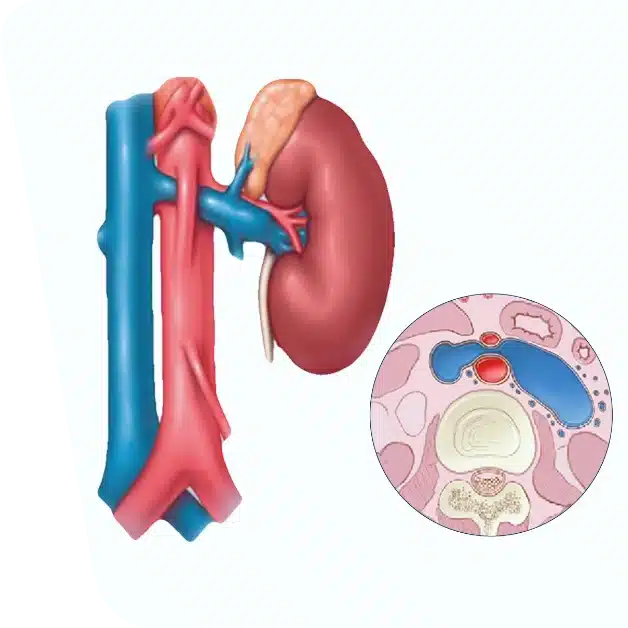Table of contents
ToggleWhat is a Hybrid Vascular Procedure
A hybrid vascular surgery is a procedure that combines traditional open surgical techniques with minimally invasive endovascular methods to treat complex vascular diseases. This approach enables surgeons to leverage the benefits of both techniques while addressing the limitations of each, leading to improved patient outcomes, reduced recovery times, and lower complication rates.
Hybrid vascular surgeries are typically performed in specialized hybrid operating rooms equipped with advanced imaging systems, which allow for real-time visualization of the vascular structures. These procedures can be used to treat various vascular conditions, such as aortic aneurysms, peripheral arterial disease, and carotid artery stenosis.
Hybrid Aortic Aneurysm Repair
This procedure is used to treat complex aortic aneurysms that involve the aortic arch or the aortoiliac region. The surgeon performs an open surgical repair, such as debranching of the aortic arch vessels or aortoiliac bypass, followed by an endovascular procedure, such as stent-graft placement, to seal the aneurysm.
Hybrid Carotid Artery Stenting
In patients with carotid artery stenosis who are at high risk for traditional carotid endarterectomy, a hybrid approach can be employed. The surgeon first performs a carotid endarterectomy to remove the plaque, followed by the placement of a stent to ensure optimal blood flow through the treated artery.
Hybrid Lower Extremity Revascularization
This procedure is used to treat peripheral arterial disease in the lower extremities. It combines open surgical bypass grafting with endovascular angioplasty and stenting to reestablish blood flow in the affected limb.
Hybrid Repair of Thoracoabdominal Aortic Aneurysms
This procedure involves open surgical debranching of the visceral arteries, followed by endovascular stent-graft placement to exclude the aneurysm from circulation.
Advantages of hybrid vascular surgery compared to interventional (arterial revascularization with stent, balloon, stent-graft)
The choice between hybrid vascular surgery and angioplasty depends on the specific vascular condition, its severity and the patient’s overall health. In some cases, hybrid vascular surgery may offer significant advantages over angioplasty. Here are some reasons why you might choose hybrid vascular surgery over angioplasty:
- Treating complex vascular conditions: hybrid vascular surgery combines minimally invasive endovascular techniques and classic surgical procedures. This approach allows the treatment of complex or combined vascular conditions that cannot be effectively addressed by angioplasty alone.
- Reduced risks: Hybrid vascular surgery can reduce the risk of complications, such as bleeding and infection, compared to traditional methods. This approach can also be less invasive than angioplasty in some cases, leading to a faster recovery and reduced postoperative pain.
- Improved results: The combination of techniques used in hybrid vascular surgery may provide better results than angioplasty in the treatment of complex vascular conditions. For example, in aortic aneurysms, hybrid surgery can provide a more durable and safer solution than stent angioplasty.
- Personalised approach: Hybrid vascular surgery allows doctors to tailor treatment to the patient’s specific needs. This means the doctor can choose the most appropriate combination of procedures to achieve the best possible results.
However, it’s important to discuss available treatment options with your vascular doctor and consider factors such as the severity of the condition, overall health, age and personal preferences before making a decision. Your doctor will give you a recommendation based on your specific circumstances.
The Benefits of a Hybrid Vascular Procedure
Hybrid vascular surgeries offer several advantages, including reduced trauma to the patient, shorter hospital stays, faster recovery, and lower complication rates compared to traditional open surgery. However, not all patients or vascular conditions are suitable candidates for hybrid procedures. The decision to perform a hybrid vascular surgery is based on the patient’s overall health, the complexity of the vascular disease, and the surgeon’s experience and expertise.
For more information or if you would like a consultation, do not hesitate to contact us.







